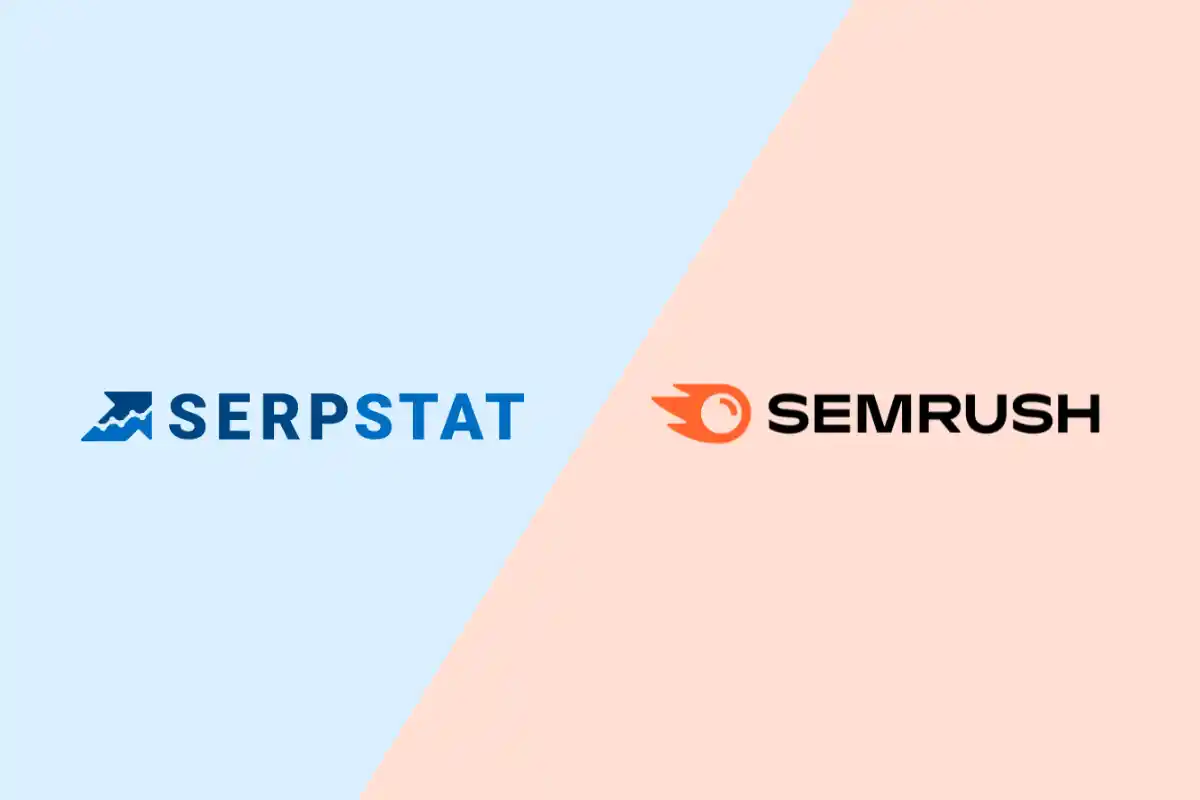If you are in the SEO or marketing field, you have probably become aware of the usefulness of SEO tools. Serpstat and SEMrush are both common names there. But who ranks higher?
When it comes to SEO tools, Serpstat and SEMrush are two of the most well-known platforms available.
Both are robust tools that can help with keyword research, competitor analysis, backlink tracking, and more. However, they serve different user needs and have unique features.
The choice between the two can be challenging. After all, both offer a wide array of features designed to improve SEO efforts for businesses, content creators, and digital marketers.
This blog will compare Serpstat and SEMrush in detail, providing you with a comprehensive understanding of each tool’s offerings.
We’ll explore their key features, strengths, and weaknesses to help you decide which platform suits your specific SEO goals.
Whether you’re a beginner, a seasoned marketer, or a small business owner, this guide will help you make an informed decision about which SEO tool to choose. We also discussed whether using both together is the best strategy for your needs.
Table of Contents
Serpstat Overview
Serpstat is an all-in-one SEO platform designed to meet the needs of businesses, digital marketers, and agencies.

Launched in 2013, Serpstat has quickly gained popularity due to its affordable pricing and comprehensive features.
The platform primarily focuses on providing tools for keyword research, website analysis, rank tracking, backlink analysis, and competitor research.
It is user-friendly and well-suited for those looking for an intuitive, straightforward tool.
Key Features of Serpstat
- Keyword Research: Serpstat’s keyword research tools help users find valuable keywords for their SEO strategies.
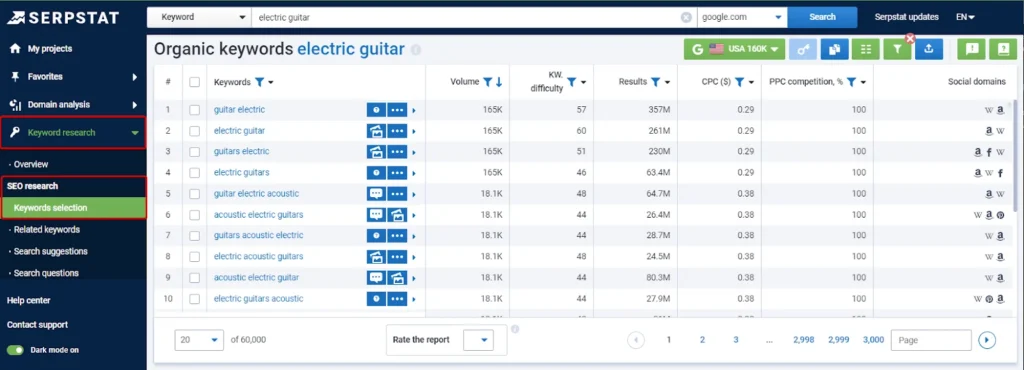
With a clean interface, it provides useful metrics such as search volume, keyword difficulty, and trends, which are essential for optimizing website content.
- Rank Tracking: The rank tracking feature allows users to monitor their keyword rankings over time.
You can track your website’s position in search engine results pages (SERPs) across various locations and devices.
- Backlink Analysis: Serpstat offers a backlink analysis tool that helps users evaluate their link-building efforts and assess competitor backlink strategies.
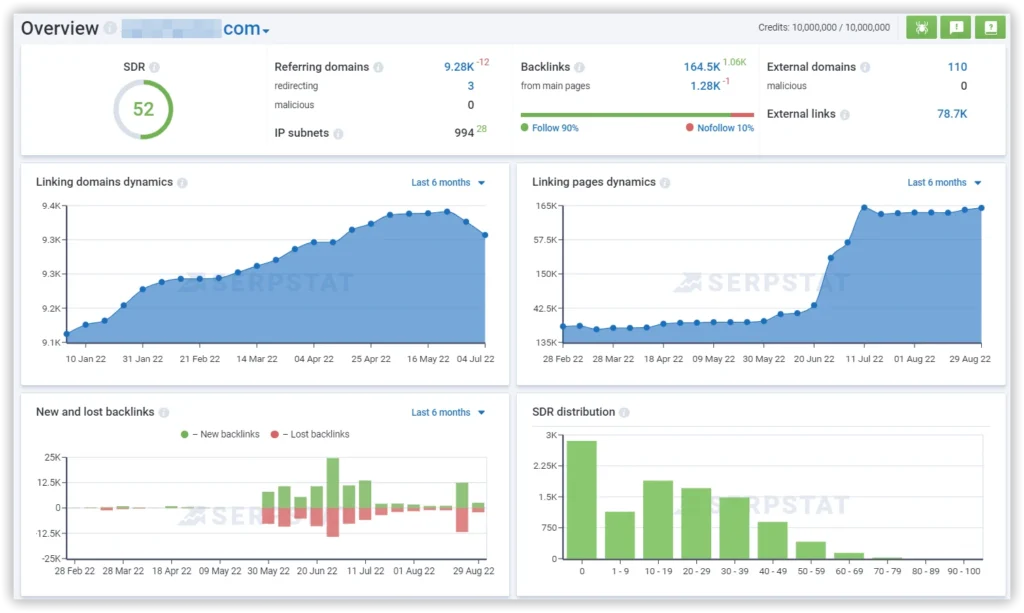
This feature provides valuable insights into your link profile and helps identify potential link-building opportunities.
- Competitor Research: With Serpstat, users can analyze their competitors’ SEO strategies and identify what keywords they are ranking for.
This is especially useful for refining your own SEO tactics and staying competitive in your niche.
Pros
- Affordable pricing, especially for small businesses.
- Intuitive, easy-to-navigate interface.
- Well-rounded set of features for an all-in-one SEO tool.
Cons
- Some limitations in keyword database size compared to SEMrush.
- Certain advanced features are more limited than those offered by larger competitors.
SEMrush Overview
SEMrush is one of the most widely used and comprehensive SEO platforms available today.
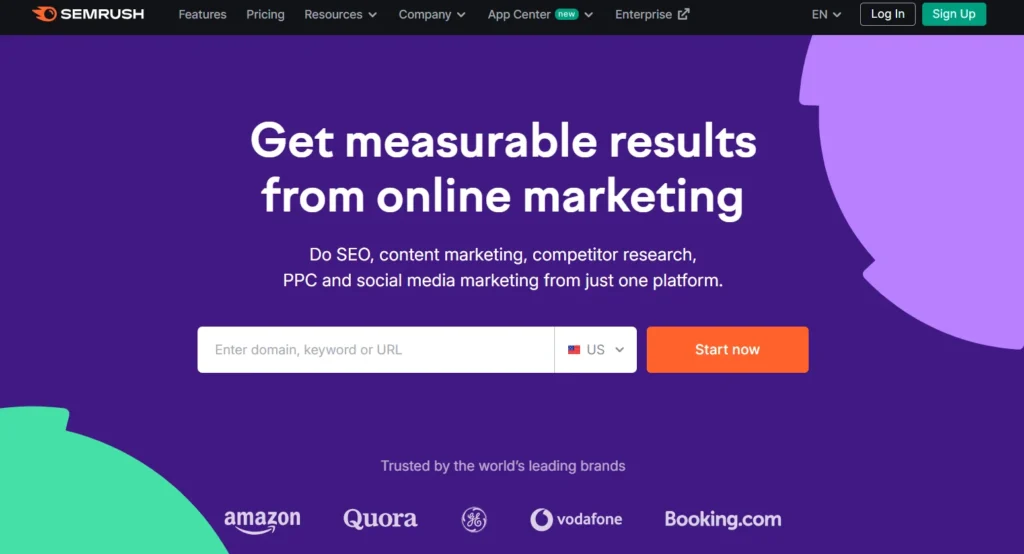
Established in 2008, SEMrush has earned a reputation for offering a wide array of tools. It covers everything from keyword research and site audits to-
- Competitor analysis
- Content marketing and,
- PPC campaign management
The platform is designed to serve businesses of all sizes and experience levels. They can utilize the highly detailed data and insights for SEO professionals.
Key Features of SEMrush
- Keyword Research: SEMrush’s keyword research tools are considered some of the best in the industry.
Users can access an expansive keyword database and analyze keyword difficulty, search volume, and trends.

Additionally, SEMrush offers long-tail keyword suggestions and competitive keyword analysis, helping users refine their SEO strategy.
- SEO Audit: The platform’s SEO audit tool scans your website for technical issues that may hinder SEO performance.
SEMrush provides actionable recommendations to fix problems such as broken links, slow loading times, and improper meta tags.
- Competitor Analysis: SEMrush’s competitor analysis tools provide detailed insights into your competitors’ organic and paid search strategies.
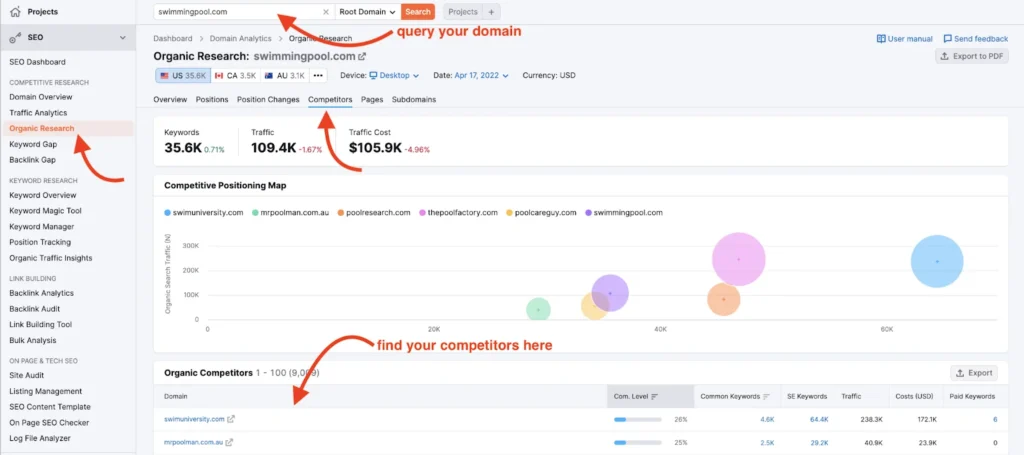
You can track their keyword rankings, ad strategies, and backlink profiles, helping you stay ahead in your industry.
- PPC & Advertising Tools: Beyond SEO, SEMrush also offers comprehensive PPC campaign tools, making it a great choice for businesses managing both organic and paid search efforts.
You can track ad performance, identify profitable keywords, and analyze competitor ad strategies.
- Content Marketing: SEMrush helps marketers create data-driven content strategies by providing insights into trending topics and helping optimize existing content for SEO.
Pros
- Extensive toolset with comprehensive features for SEO, PPC, and content marketing.
- Huge keyword database and accurate data.
- Excellent competitor research and benchmarking.
Cons
- High price point compared to other SEO tools.
- The platform may be overwhelming for marketing and SEO beginners due to its extensive feature set.
Comparison of Features Between Serpstat and SEMrush
When deciding between Serpstat and SEMrush, it’s essential to consider the differences in their features. Both platforms offer robust SEO tools, but their functionality vary significantly.
Keyword Research
- Serpstat: Offers a solid keyword research tool with essential metrics such as search volume, keyword difficulty, and trends. However, its keyword database is somewhat smaller compared to SEMrush’s.
It’s great for basic research and smaller businesses, but you may find limitations for highly competitive niches.
- SEMrush: Provides a more advanced and detailed keyword research tool. With an extensive keyword database, SEMrush offers deeper insights into keyword competition, search intent, and related long-tail keywords.
It’s ideal for businesses looking for highly competitive keywords and in-depth analysis.
Rank Tracking
- Serpstat: Offers reliable rank tracking but lacks some of the more advanced features of SEMrush.
It tracks keyword rankings across different devices and locations, but the reports may not be as granular.
- SEMrush: Provides more robust rank tracking features, including detailed ranking history, SERP features tracking (like featured snippets), and competitor tracking.
SEMrush also offers more customizable reporting options.
Backlink Analysis
- Serpstat: Provides a basic backlink analysis tool, which includes backlink quality and anchor text reports. The backlink database, however, is not as extensive as SEMrush’s.
- SEMrush: SEMrush’s backlink analysis is one of its strongest features.
It offers detailed insights into backlinks, including new, lost, and broken links, along with a vast database and advanced filtering options for a thorough analysis.
Overall, SEMrush offers a more comprehensive set of features with advanced tools, making it better suited for businesses with larger-scale SEO efforts.
Meanwhile, Serpstat excels in offering a more budget-friendly and straightforward SEO solution.
Pricing Comparison
Assessing your budget is mandatory when choosing a tool. Let’s check which option is the best for your bucks.
Serpstat Pricing
Serpstat is known for its affordability, offering several pricing tiers that cater to different business needs.
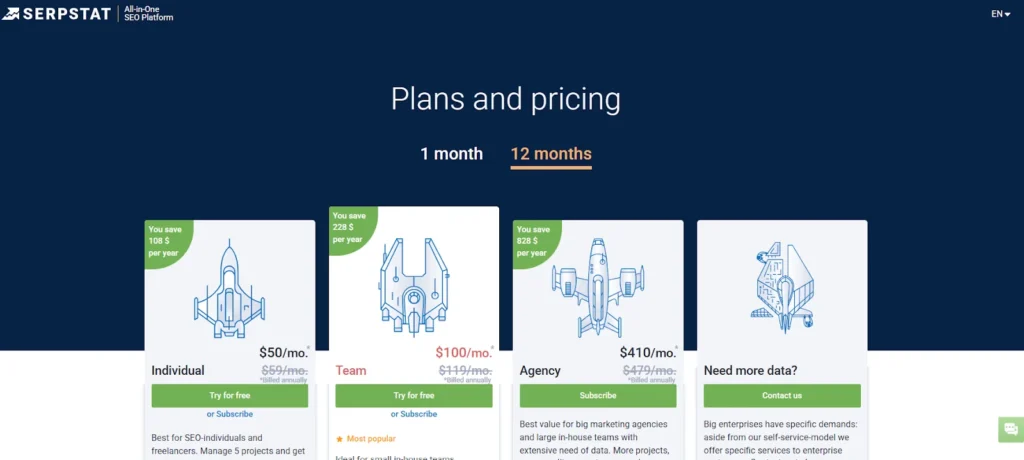
It provides a Free Plan with limited features and Paid Plans starting at $69/month for the Lite plan.
The Individual plan is priced at $50/month, and the Team plan costs $100/month. The Agency plan is for larger scale SEO or marketing approaches, costing $410/month.
They also can help larger businesses with their specific needs using the Enterprise plan, which features a customizable plan.
Finally, Serpstat offers a 7-day trial for paid plans, allowing users to explore its features before committing to a subscription.
Given its pricing, Serpstat is an excellent choice for small to medium-sized businesses or freelancers with a limited budget.
SEMrush Pricing
SEMrush is a more premium tool, and its pricing reflects that.

The Pro Plan starts at $139.95/month, the Guru Plan costs $249.95/month, and the Business Plan is priced at $499.95/month.
While SEMrush offers a 7-day free trial, it is significantly more expensive than Serpstat.
However, the higher price comes with access to a wider range of features, a larger database, and more advanced SEO, PPC, and content marketing tools.
Which is More Cost-Effective?
While Serpstat is more budget-friendly, SEMrush offers greater depth and breadth in features. If you are just starting out or have a small business, Serpstat provides great value.
For larger businesses or agencies that require comprehensive tools, SEMrush may justify the higher cost.
Can You Use Them Together?
Yes, you can absolutely use Serpstat and SEMrush together. In many cases, combining both tools can enhance your SEO strategy.
Serpstat is more budget-friendly and offers solid features for keyword research, rank tracking, and backlink analysis. SEMrush provides deeper, more advanced insights across SEO, PPC, content marketing, and competitor analysis.
By using both, you can-
- Leverage Serpstat for daily SEO tasks like keyword research and rank tracking
- Turning to SEMrush for more detailed competitor analysis, comprehensive site audits, and content strategy planning
The combination of Serpstat’s ease of use and SEMrush’s extensive database and advanced features will give you the best of both worlds. Of course, the combined cost will be higher.
This pairing is particularly beneficial for businesses that want to maximize the effectiveness of their SEO efforts without missing any key insights.
Conclusion
In conclusion, both Serpstat and SEMrush are powerful SEO tools, but they cater to different needs.
Serpstat is an affordable, easy-to-use solution for small businesses and individuals. On the other hand, SEMrush offers a premium toolset for larger businesses with complex SEO needs.
Alternatively, using both in tandem can provide an unbeatable, all-encompassing SEO solution.

